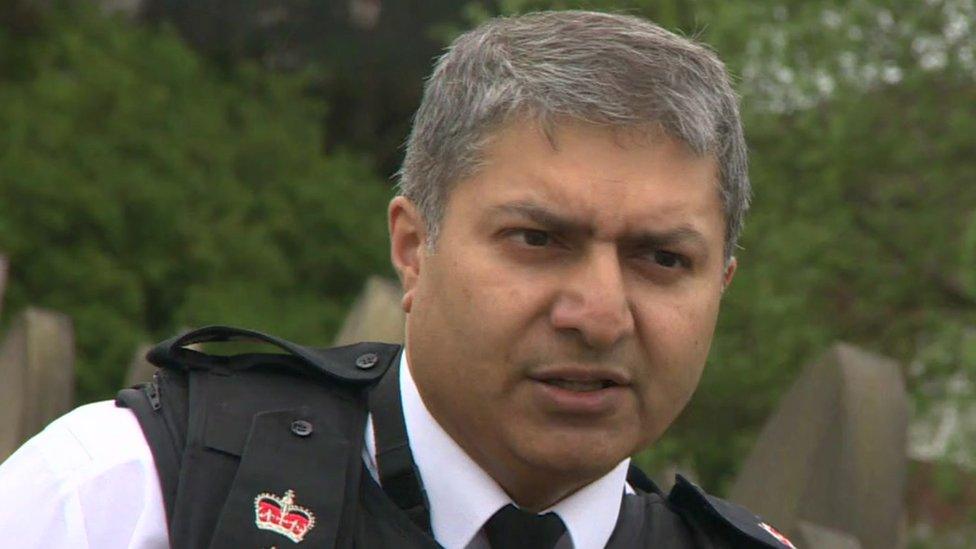Police encourage Muslim women to report hate crime
- Published
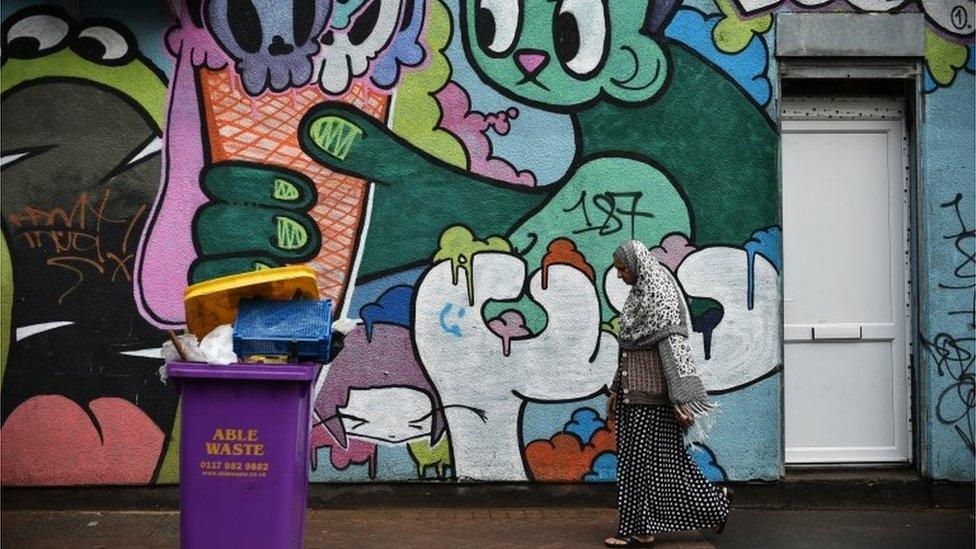
Police said there were a "total of 191 female Islamophobia victims from Bristol" from 2017 to August 2019
Some Muslim women suffer hate crime on an almost daily basis and police must make them aware they do not need to accept it, an officer has said.
Avon and Somerset Police said three-quarters of recorded hate crimes towards women in the past two years in Bristol were anti-Muslim.
Supt Andy Bennett said: "It is a crime and you don't have to put up with it".
Aaliyah Hussain, founder of campaigning organisation We Rise, said "all women face barriers" when reporting crime.
Supt Bennett and Ms Hussain said some victims got so used to being abused they treated it as normal, racial harassment tended to be carried out by young white men and that some people assumed Muslim women would not be allowed by men to report crimes.
Under-reporting 'off the charts'
Supt Bennett, Avon and Somerset Police's hate crime lead, said: "Islamic women in particular are suffering, often almost daily, verbal harassment and persistent name calling and intimidation - and this is the area where we really want to smash it.
"They are normalising this behaviour because it's part of their everyday life and I want to say 'the police absolutely don't want you to put up with this behaviour'."
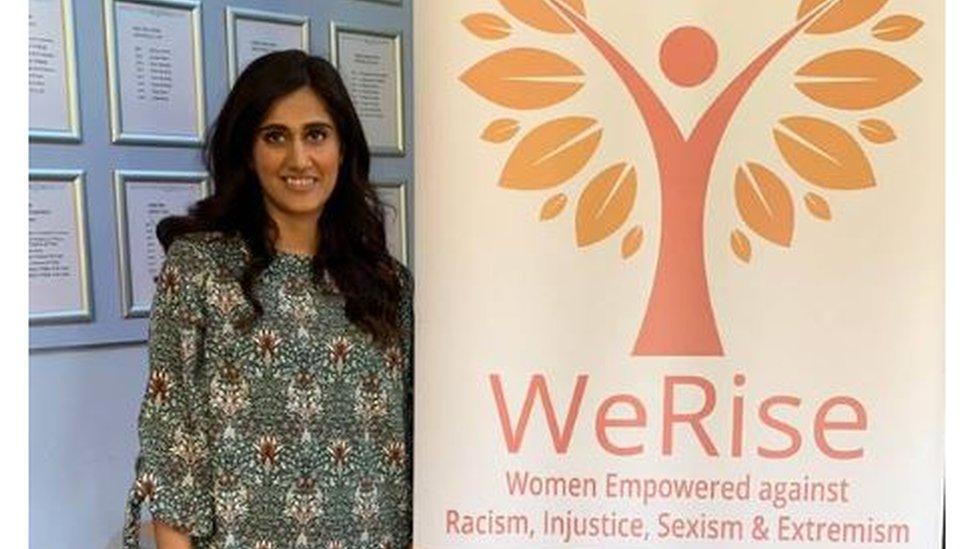
Aaliyah Hussain said people should "look at wider gender discrimination in our society and not just focus on cultural and religious causes"
Ms Hussain, from We Rise, which aims to empower Muslim women, said: "Sometimes there's a tendency to treat Muslim women differently than women in general when it comes to issues such as not reporting crime.
"The assumption made by many authorities is that Muslim women are under the control of men and therefore aren't able to report crimes, when actually if you look at the wider statistics relating to all gender-based violence such as sexual harassment, rape, domestic violence - you can see that the reporting rates are very low."
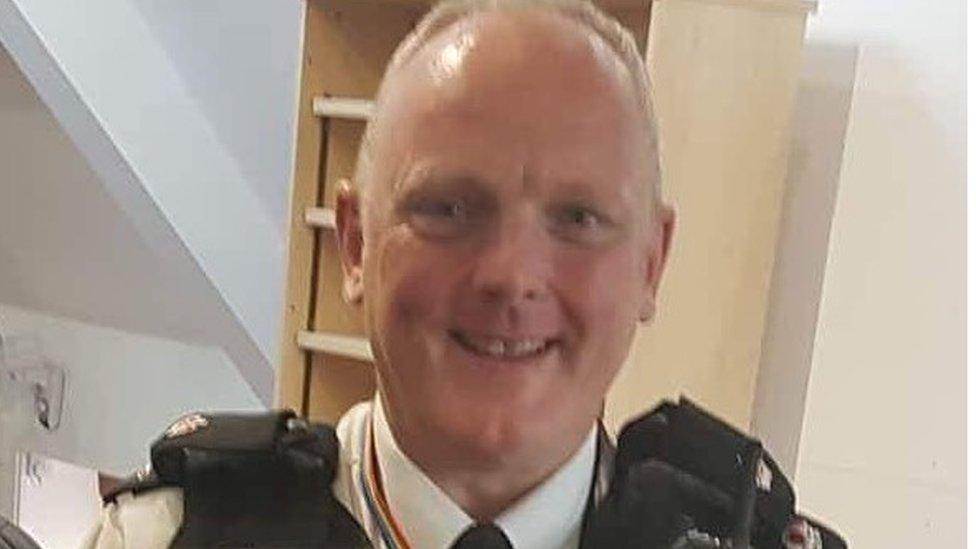
Supt Andy Bennett said "perpetrators of racial harassment tend to be young white men"
Supt Bennett said, based on results from The British Crime Survey, police knew there was "still a substantial gap between reported and unreported crime and in some crime categories it can be as much as 50%".
"The survey unsurprisingly shows even higher levels of under-reporting for hate crime. Every time I talk to Muslim groups, I can never find anybody who hasn't suffered from some form of hate crime and therefore my gut tells me that under-reporting is probably off the charts," he said.
He said officers had to "work much harder" to get the message through to women because "they're not as overtly present on prayer days as the men".
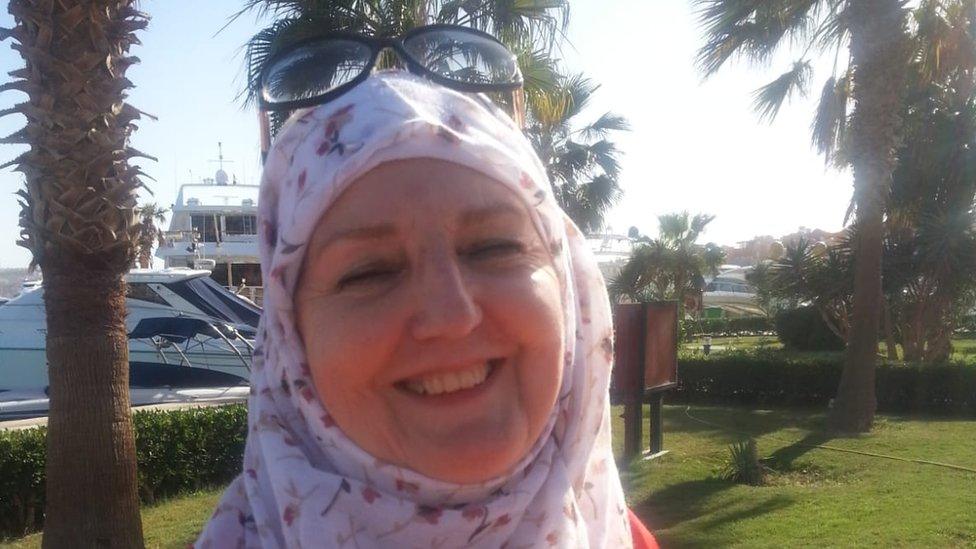
Sheila el Dieb said she has experienced hate crime, some of which she had not reported to the police
Sheila el Dieb, 72, from Bristol, has been a Muslim for 20 years. She said her experiences ranged from verbal abuse to physical abuse and damage of her property in previous homes.
"Sometimes I feel that women may be reluctant to report incidents and run the risk of upsetting family members who have been unable to protect them and risk changing the normal pattern of life," she said.
"I think most of the hate crime is perpetrated in the street by people passing by. Often we go into shock when it happens because it's unexpected and we don't know what to do.
"Generally it's opportunist. If your first language is not English, you think 'did I really hear that?'."
'Fair game'
Supt Bennett said the abuse his force dealt with was not just confined to Bristol.
"There are mosques in Bridgwater, Yeovil, Taunton, Street, Glastonbury," he said. "It's not unique to Bristol but amplified by the size of the Muslim community.
"An incredible amount of hate crime is perpetrated by a stranger to the victim. Our positive outcomes in hate crime are incredibly low and if we don't have CCTV or witnesses it can be difficult.
"The perpetrators of racial harassment tend to be young white men under the age of 25. Perpetrators of hate crime tend to be cowards. They pick on people when they're vulnerable, on their own. It's the psychology of the bully.
"Why young white men? Hate crime is driven by ignorance. If you were to profile that 'young white man', they would tend to be what I'd call right wing."
Aaliyah Hussain said she had not experienced anti-Muslim crime because she was not "visibly Muslim".
"I don't wear the headscarf. I've endured racism but not Islamophobia. But women who do wear the headscarf are far more likely to be abused because they're considered fair game - and it's because of the pervasive hostility towards Muslims that is encouraged by the right wing media," she said.
Alex Raikes, from Stand Against Racism and Inequality (SARI), said they "encouraged Muslim women to come forward to them when they suffer anti-Muslim abuse".
"SARI will support any victim whether they want to report to other agencies or not - 35% of SARI's clients are Muslim so many people are coming forward and clearly Islamophobic abuse is happening all too often.
"If it's not reported, it can't be stopped. SARI has also set up the Tackling Islamophobia Working Group (TIWG) to ensure agencies such as the police and local authority and Muslim communities work together."
- Published5 April 2019
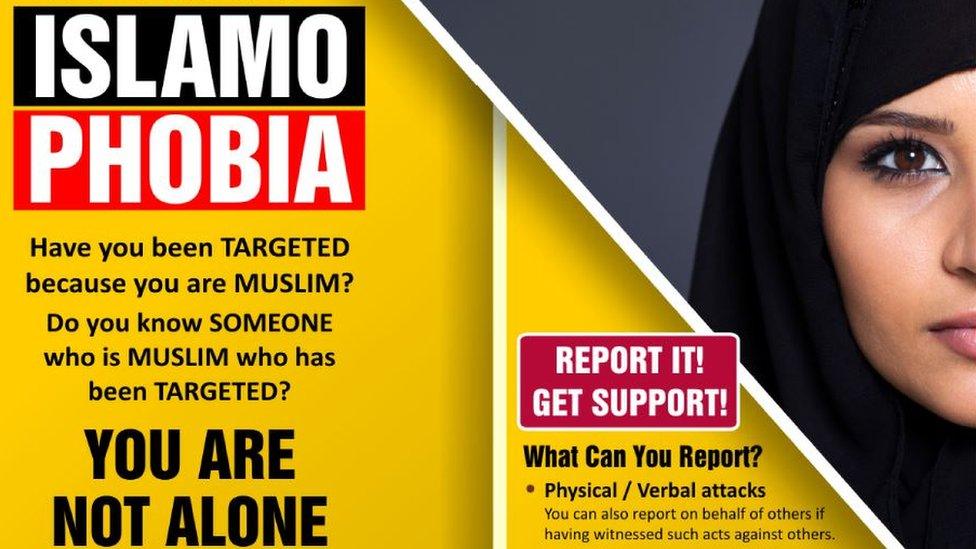
- Published14 October 2018
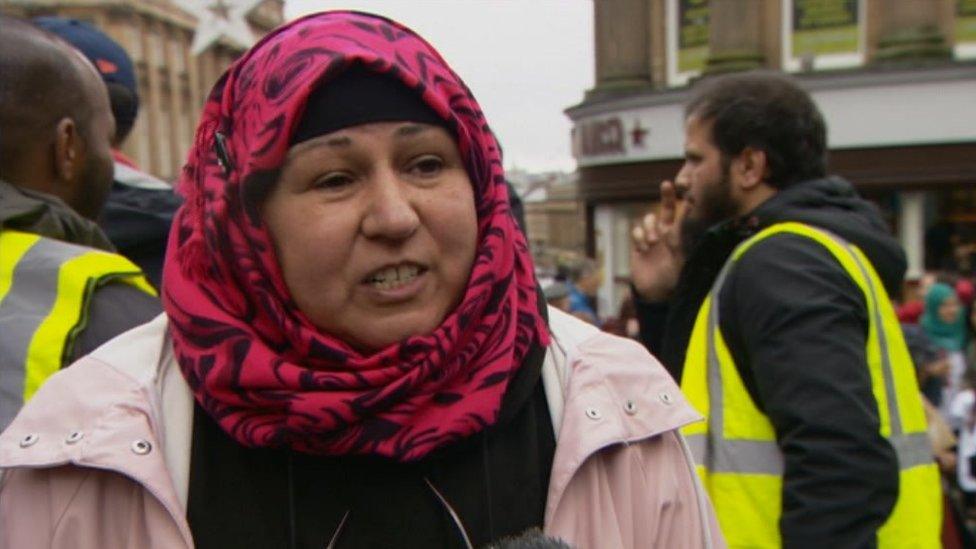
- Published6 June 2017
